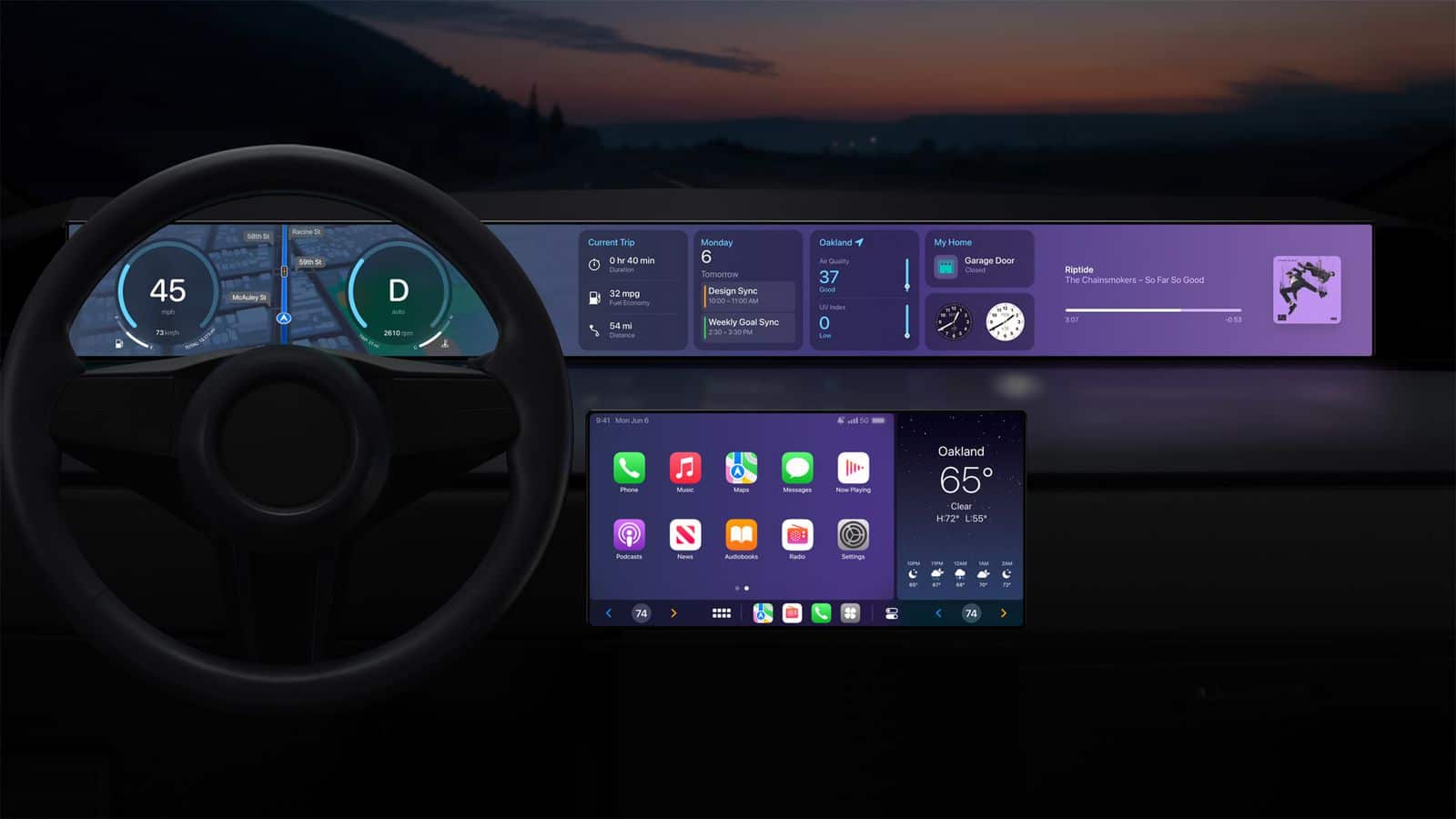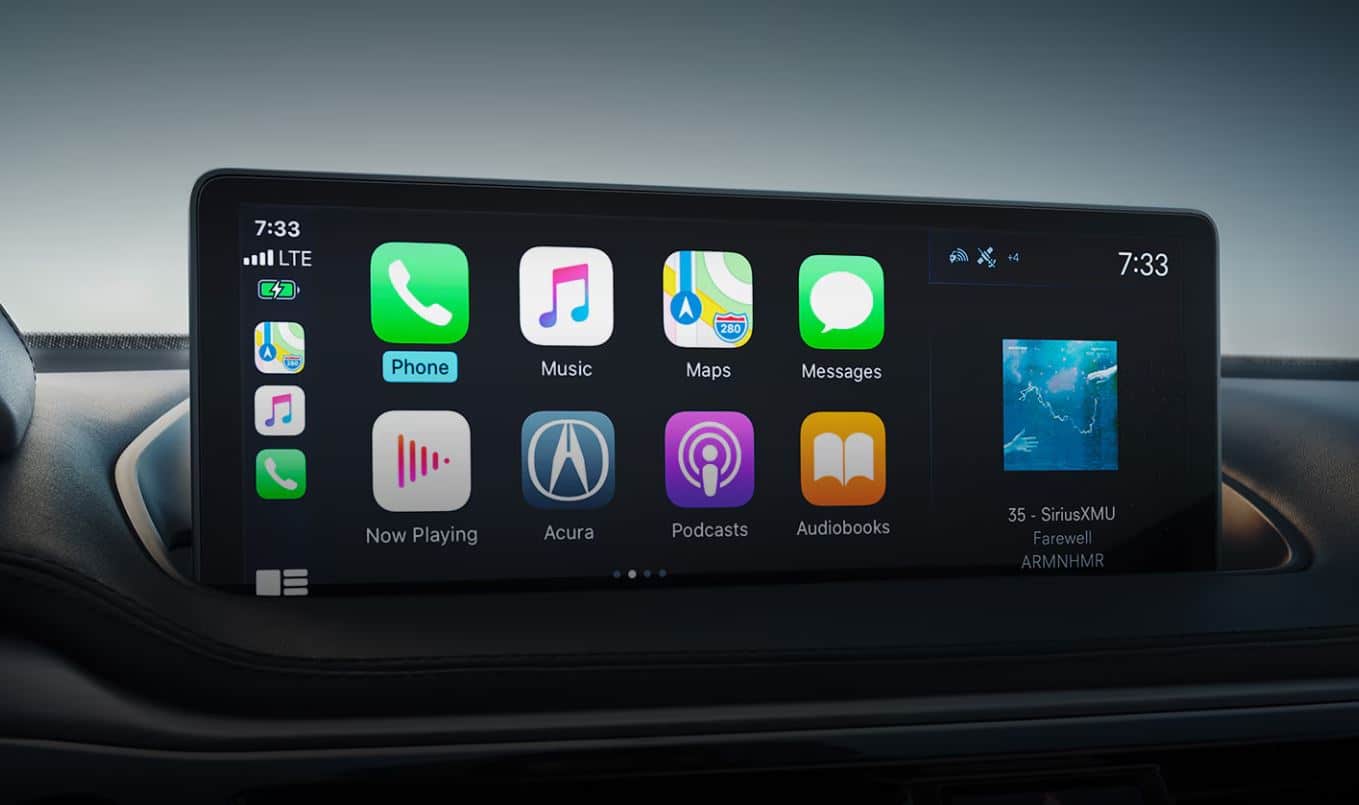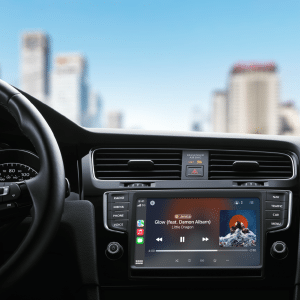Apple CarPlay security mechanics are built around several principles, including encryption, privacy, and user control. The system operates as an extension of the iPhone, displaying a user-friendly interface on the car’s infotainment system that limits distractions while providing access to essential apps. By leveraging the iPhone’s existing security features and incorporating additional layers of protection, Apple has designed CarPlay to be a secure platform that integrates seamlessly with the car’s display.
Data Encryption for User Privacy
One of the primary security measures in Apple CarPlay is data encryption. Apple uses robust encryption protocols to secure data transmitted between the iPhone and the vehicle, ensuring that personal information remains protected from unauthorized access. This approach is particularly important for sensitive data like messages, navigation history, and contact information, which users rely on while driving.
Apple’s commitment to encryption means that even if someone intercepts the data being transmitted, they cannot access it without the necessary decryption key. This feature protects users from potential security breaches and ensures that their private information is safe. By using end-to-end encryption, Apple has strengthened CarPlay’s defense against hacking attempts and unauthorized access.
Permission-Based Access for Control Over Data
Apple CarPlay also relies on permission-based access to maintain control over what data is shared between the iPhone and the vehicle. When users connect their iPhone to CarPlay, they have the ability to control which apps and services are accessible through the platform. This level of customization ensures that users can determine what information is visible and which functions are enabled, based on their preferences and needs.
This permission-based model helps protect users from unintentional data sharing, giving them the freedom to choose the level of interaction they want with CarPlay. Additionally, this selective access limits the scope of data that is transmitted, making it harder for unauthorized parties to access sensitive information. By giving users control over data sharing, Apple adds an extra layer of protection that aligns with its broader approach to privacy.
Key Security Features of Apple CarPlay
Apple’s emphasis on security is evident in CarPlay’s comprehensive feature set, which is designed to enhance user safety without compromising the user experience. Here are some of the critical components of Apple CarPlay security mechanics that ensure a safe and efficient experience for users.
CarPlay is an extension of iOS, meaning it benefits from the inherent security features built into Apple’s mobile operating system. iOS is known for its strong security architecture, which includes features like sandboxing, app permissions, and routine security updates. By integrating CarPlay into iOS, Apple has leveraged this secure foundation to provide users with a safe in-car experience.
Sandboxing, for example, ensures that each CarPlay-compatible app operates within its own isolated environment, reducing the risk of cross-app data leaks or interference. This containment mechanism is critical for preventing potential malware or unauthorized access, further reinforcing the platform’s security. With regular iOS updates, CarPlay users also benefit from continuous security enhancements, as Apple rolls out patches and fixes to address any newly discovered vulnerabilities.
Limited Access to Apps for Reduced Distraction
To prioritize safety, Apple CarPlay restricts access to certain apps and functions that may be distracting while driving. Only essential apps, such as Maps, Messages, Music, and Phone, are accessible through CarPlay, with a simplified interface that minimizes the need for physical interaction. This approach not only improves user safety by reducing distractions but also limits the potential for unauthorized app access.
By curating the list of apps that can be accessed via CarPlay, Apple is able to prevent potential security threats that may arise from less trusted third-party applications. This strategy enhances both safety and security, giving users confidence that they are interacting with trusted applications that meet Apple’s rigorous standards for privacy and performance.
Siri integration is another significant aspect of Apple CarPlay security mechanics. Apple’s voice assistant allows users to control CarPlay hands-free, minimizing the need to look at the screen or touch the controls while driving. With Siri, drivers can dictate messages, get directions, or play music using voice commands, ensuring they stay focused on the road.
Using Siri for hands-free interaction not only improves safety but also maintains security. Siri processes commands directly on the device, meaning sensitive information is not sent to external servers unnecessarily. This local processing is especially important for users who value privacy and wish to minimize data sharing. Through Siri, Apple ensures that CarPlay remains safe, convenient, and private.
Security Challenges and Apple’s Solutions
While Apple CarPlay security mechanics provide a robust framework for user safety, the platform is not without its challenges. Apple has addressed some of these potential security concerns through continuous updates, collaboration with car manufacturers, and a commitment to user privacy.
One of the main challenges with CarPlay is maintaining compatibility with third-party apps without compromising security. Apple is selective about which third-party apps can be accessed through CarPlay, choosing only those that meet its stringent privacy and safety standards. This selective approach ensures that only trusted developers are allowed to create apps for CarPlay, reducing the likelihood of malicious software infiltrating the platform.
For apps that are CarPlay-compatible, Apple enforces rigorous data protection standards, requiring developers to follow strict guidelines to ensure user privacy. This careful curation process maintains the integrity of the platform while allowing users to enjoy a wide range of secure, CarPlay-approved applications.
Apple works closely with car manufacturers to ensure that CarPlay operates securely within various vehicle systems. This partnership allows Apple to integrate CarPlay’s security mechanics into the car’s existing safety framework, creating a unified experience that protects both the vehicle and the user’s device. By collaborating with automakers, Apple can ensure that CarPlay’s functionality aligns with each car’s safety protocols, enhancing the platform’s reliability and security.
Apple’s partnerships with car manufacturers also facilitate regular security updates, ensuring that CarPlay remains compatible with new car models and safety advancements. This collaborative approach allows CarPlay to benefit from the latest automotive security measures, reinforcing its place as a trusted in-car solution.
The Future of Apple CarPlay Security Mechanics
As CarPlay continues to evolve, Apple CarPlay security mechanics are expected to advance as well. Apple’s focus on privacy, user control, and seamless integration means that future updates will likely bring additional security features that enhance the platform’s reliability and usability.
With advancements in biometric technology, Apple may incorporate biometric authentication methods into future versions of CarPlay. Face ID or fingerprint recognition could be used to grant access to CarPlay, providing a higher level of security for drivers. Biometric authentication could be particularly useful for shared vehicles, where multiple users connect their iPhones to CarPlay, ensuring that each driver’s data remains private.
Apple could leverage AI and machine learning to improve CarPlay’s security by detecting suspicious activity and adapting to potential security threats. AI-driven security measures could proactively identify risks, allowing CarPlay to respond to potential breaches in real time. This capability would enhance CarPlay’s protective measures, giving users peace of mind that their data is secure even as threats evolve.
Apple CarPlay Security Mechanics Ensure a Safer, Smarter Drive
The development of Apple CarPlay security mechanics reflects Apple’s commitment to providing a secure, user-friendly experience in the car. Through data encryption, permission-based access, and continuous collaboration with automakers, Apple has designed a platform that prioritizes privacy and safety while enhancing connectivity. The integration of voice control with Siri and restrictions on distracting apps further ensures that CarPlay remains a trusted choice for drivers.
As Apple CarPlay continues to evolve, it will likely incorporate even more advanced security features, driven by innovations in biometrics and AI. For users, this means a safer, more intuitive driving experience where they can enjoy the convenience of CarPlay without compromising their data security.








